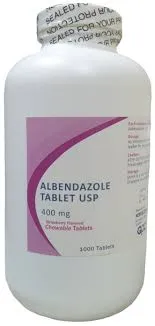- Afrikaans
- Albanian
- Amharic
- Arabic
- Armenian
- Azerbaijani
- Basque
- Belarusian
- Bengali
- Bosnian
- Bulgarian
- Catalan
- Cebuano
- Corsican
- Croatian
- Czech
- Danish
- Dutch
- English
- Esperanto
- Estonian
- Finnish
- French
- Frisian
- Galician
- Georgian
- German
- Greek
- Gujarati
- Haitian Creole
- hausa
- hawaiian
- Hebrew
- Hindi
- Miao
- Hungarian
- Icelandic
- igbo
- Indonesian
- irish
- Italian
- Japanese
- Javanese
- Kannada
- kazakh
- Khmer
- Rwandese
- Korean
- Kurdish
- Kyrgyz
- Lao
- Latin
- Latvian
- Lithuanian
- Luxembourgish
- Macedonian
- Malgashi
- Malay
- Malayalam
- Maltese
- Maori
- Marathi
- Mongolian
- Myanmar
- Nepali
- Norwegian
- Norwegian
- Occitan
- Pashto
- Persian
- Polish
- Portuguese
- Punjabi
- Romanian
- Russian
- Samoan
- Scottish Gaelic
- Serbian
- Sesotho
- Shona
- Sindhi
- Sinhala
- Slovak
- Slovenian
- Somali
- Spanish
- Sundanese
- Swahili
- Swedish
- Tagalog
- Tajik
- Tamil
- Tatar
- Telugu
- Thai
- Turkish
- Turkmen
- Ukrainian
- Urdu
- Uighur
- Uzbek
- Vietnamese
- Welsh
- Bantu
- Yiddish
- Yoruba
- Zulu
Ноя . 24, 2024 02:49 Back to list
dexamethasone sodium phosphate 4 mg/ml injection solution
Dexamethasone Sodium Phosphate Injection A Key Therapeutic Agent
Dexamethasone sodium phosphate is a potent synthetic corticosteroid derived from hydrocortisone, widely used in clinical settings due to its anti-inflammatory and immunosuppressive properties. The injectable formulation, specifically at a concentration of 4 mg/ml, has garnered significant attention for its versatility in treating a variety of medical conditions. This article explores the indications, mechanisms of action, side effects, and considerations for the use of dexamethasone sodium phosphate injection.
Indications
Dexamethasone sodium phosphate injection is employed in a multitude of clinical scenarios. It is most commonly administered for conditions involving severe inflammation, such as allergic reactions, autoimmune diseases like lupus and rheumatoid arthritis, and certain types of skin and eye disorders. Additionally, this corticosteroid plays a crucial role in managing acute cerebral edema resulting from tumors, surgery, or radiation therapy.
One notable use of dexamethasone is in the treatment of COVID-19 patients requiring oxygen therapy or mechanical ventilation, where it has been shown to improve mortality rates. The drug's effectiveness in reducing inflammation in the lungs helps mitigate the severe respiratory compromise associated with the illness. Moreover, dexamethasone is also used in the treatment of specific cancers as part of palliative care or in conjunction with chemotherapy regimens.
Mechanism of Action
The therapeutic effects of dexamethasone sodium phosphate stem from its ability to modulate the immune response. It acts by binding to glucocorticoid receptors, which are found in various cells throughout the body. Once activated, this receptor complex translocates to the cell nucleus, where it influences gene expression.
Dexamethasone inhibits the production of pro-inflammatory cytokines and chemokines, thereby reducing inflammation and inhibiting the immune response. It also promotes the formation of anti-inflammatory proteins, further contributing to its effects in managing inflammatory conditions. Through these mechanisms, dexamethasone can effectively alleviate symptoms associated with excessive inflammation and autoimmunity.
dexamethasone sodium phosphate 4 mg/ml injection solution

Administration and Dosage
Dexamethasone sodium phosphate is typically administered via intramuscular or intravenous injection, allowing for rapid therapeutic effects. The dosage is highly variable and tailored to the individual patient's needs, the severity of the condition being treated, and the desired therapeutic outcomes. For instance, higher doses may be warranted in acute settings, while lower doses are often sufficient for maintenance therapy.
It is vital for healthcare professionals to carefully monitor patients receiving dexamethasone, especially those on long-term therapy, due to the potential for complications arising from corticosteroid use.
Side Effects
While dexamethasone is generally well-tolerated, it is not without potential side effects. Short-term use may lead to fluid retention, increased appetite, and mood changes, while long-term use can result in more severe complications, including osteoporosis, adrenal suppression, hyperglycemia, and an increased risk of infections.
Patients with pre-existing medical conditions, such as diabetes or hypertension, require careful consideration when prescribed dexamethasone, as the drug may exacerbate these conditions. Therefore, the benefits and risks should be thoroughly evaluated by healthcare providers.
Conclusion
Dexamethasone sodium phosphate injection, particularly at a concentration of 4 mg/ml, is an indispensable therapeutic agent in modern medicine. Its broad range of applications in treating inflammatory, autoimmune, and certain oncological conditions underscores its importance in clinical practice. As with any medication, understanding its mechanisms, appropriate usage, and potential side effects will ensure optimal patient outcomes. Continued research and clinical experience will undoubtedly further refine our understanding of dexamethasone's role in treatment protocols, solidifying its standing as a cornerstone in the management of diverse medical conditions.
-
Guide to Oxytetracycline Injection
NewsMar.27,2025
-
Guide to Colistin Sulphate
NewsMar.27,2025
-
Gentamicin Sulfate: Uses, Price, And Key Information
NewsMar.27,2025
-
Enrofloxacin Injection: Uses, Price, And Supplier Information
NewsMar.27,2025
-
Dexamethasone Sodium Phosphate Injection: Uses, Price, And Key Information
NewsMar.27,2025
-
Albendazole Tablet: Uses, Dosage, Cost, And Key Information
NewsMar.27,2025













